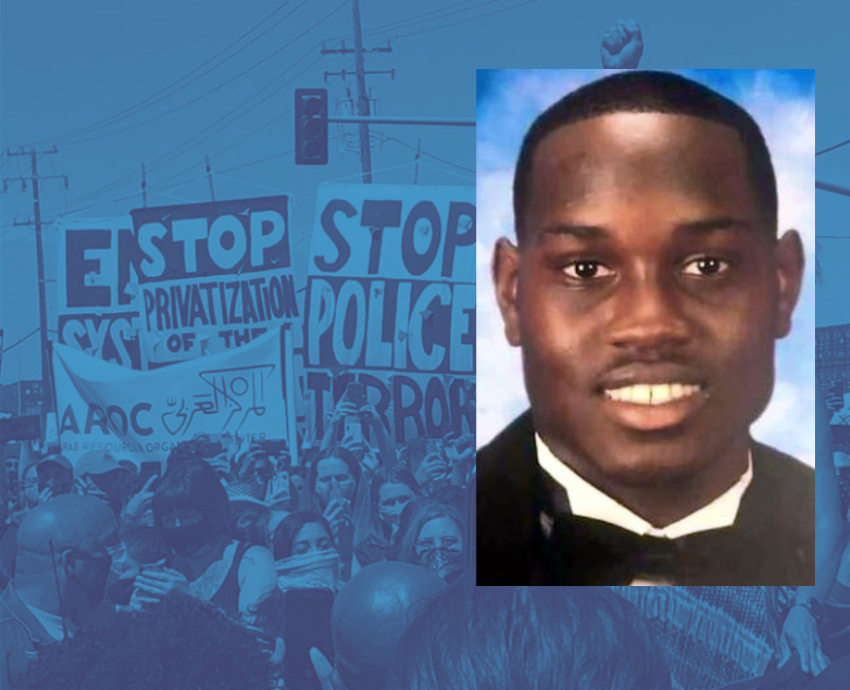
Ahmaud Arbery, an unarmed 25-year-old Black man, was out running in a Georgia neighbourhood near where he lived when three white men chased him down, accosted, assaulted and shot him dead on February 23, 2020.
In a state trial, the men said Arbery was responsible for his own death because he refused a “citizen’s arrest” for allegedly carrying out break-ins in their neighbourhood. In a historic decision, a state jury convicted them with no mention of racism as the reason for the murder.
In a later federal civil rights case filed by the Department of Justice, the three men were charged for the real reason they murdered Arbery: his race.
The majority white jury found father and son Gregory and Travis McMichael and their neighbour William “Roddie” Bryan guilty of hate crimes and attempted kidnapping. They were sentenced to life imprisonment without parole.
Why it matters
The prosecution avoided the issue of race during the state trial and approached the murder as though it was a “colour blind” trial.
Between 1885 and 1908, all 11 former Confederate states rewrote their constitutions to restrict voting rights for Black people. Laws were enacted to control Black people, as the Jim Crow period had begun. The United States Supreme Court repeatedly ruled civil rights legislation as unconstitutional in order to maintain white domination in the South.
The Arbery family was surprised by the state conviction but protested that race and racism was not introduced by the Georgia prosecutors.
Prosecutors with the justice department initially struck plea deals for the McMichaels — against the wishes of the Arbery family. A judge rejected the deals.
“What we got today, we wouldn't have gotten today if it wasn't for the fight the family put up,” said Arbery’s mother, Wanda Cooper-Jones. “We got a victory today, but there are so many families who don't get victories.”
“I think it's hard to overemphasize the significance of what happened today,” Georgia attorney Page Pate said. “We had a mostly rural south Georgia jury deliberate for less than half a day in a three-defendant, multiple-count indictment, return across-the-board guilty verdicts and elect as their foreperson the only Black male on the jury to deliver the verdict.”
The family and Black Lives Matter activists pushed the federal government to prosecute the three men in a second trial based on a hate crime — a clear civil rights violation.
The federal case focused on the real reason for Arbery’s murder — his dark skin colour.
Historic victory
The outcome of the case indicates the increasing role of the federal justice department in prosecuting hate crimes.
Less than one in five suspects of hate crime in federal cases are prosecuted, according to justice department statistics.
“The first [state] trial was whitewashed. It took race out of the situation, and that was an actual harm,” said Justin Hansford, executive director of the Thurgood Marshall Civil Rights Center at Howard University. “It meant a lot to have this second verdict that expressed a particular acknowledgment of the fact that this was a hate crime and punishing it as such.”
Weeks after Arbery’s murder, Georgia repealed its citizen’s arrest law and passed hate crimes legislation. Before this, Georgia was one of the few remaining states without hate crimes laws.
The new state law mandates penalties for crimes motivated by a victim’s colour, race, gender, religion, national origin, sexual orientation or disability.
Southern Poverty Law Center CEO Margaret Huang said the conviction was an important step in tackling the inequitable treatment of Black people.
“The fact that justice was done in this case does not deny the reality that countless Black men are targeted and killed for no reason other than the colour of their skin,” Huang said.
‘Stand Your Ground’ laws spread
While the Arbery conviction is unprecedented in the state of Georgia, innocent Black men are frequently executed by cops and vigilantes. In fact, there has been a white backlash across the country against Black lives.
Although the citizen’s arrest stature in Georgia has now been repealed, other laws allow a “stand your ground” defense even if the Black victim attempts to resist or flee, as Arbery did.
Stand your ground self-defense laws, or “shoot-first” laws, remove the duty to retreat from danger before using deadly force. Critics of the laws argue this opens the door for racially-motivated killings to be claimed as ‘self-defense’.
President of the Association of Prosecuting Attorneys David LaBahn said stand your ground laws “provide safe harbours for criminals and prevent prosecutors from bringing cases against those who claim self-defense after unnecessarily killing or injuring others”.
More than 30 states have some version of the law, which is associated with as many as 700 additional gun deaths every year, according to a study in the journal JAMA Network Open.
“These findings suggest that adoption of SYG [stand your ground] laws across the US was associated with increases in violent deaths, deaths that could potentially have been avoided,” the study concluded.
Stand up and demand justice
The federal convictions in Georgia should make clear to families of murdered Black people that they are right to strongly advocate for full prosecution under both state and federal civil rights and hate crime laws.
The modern-day Black Lives Matter movement began 10 years ago after 17-year-old Trayvon Martin was killed by a self-proclaimed vigilante who was acquitted by arguing his right to self-defense.
While justice is never possible for Arbery’s family, the convictions show the power of popular mass action led by the victim’s family.